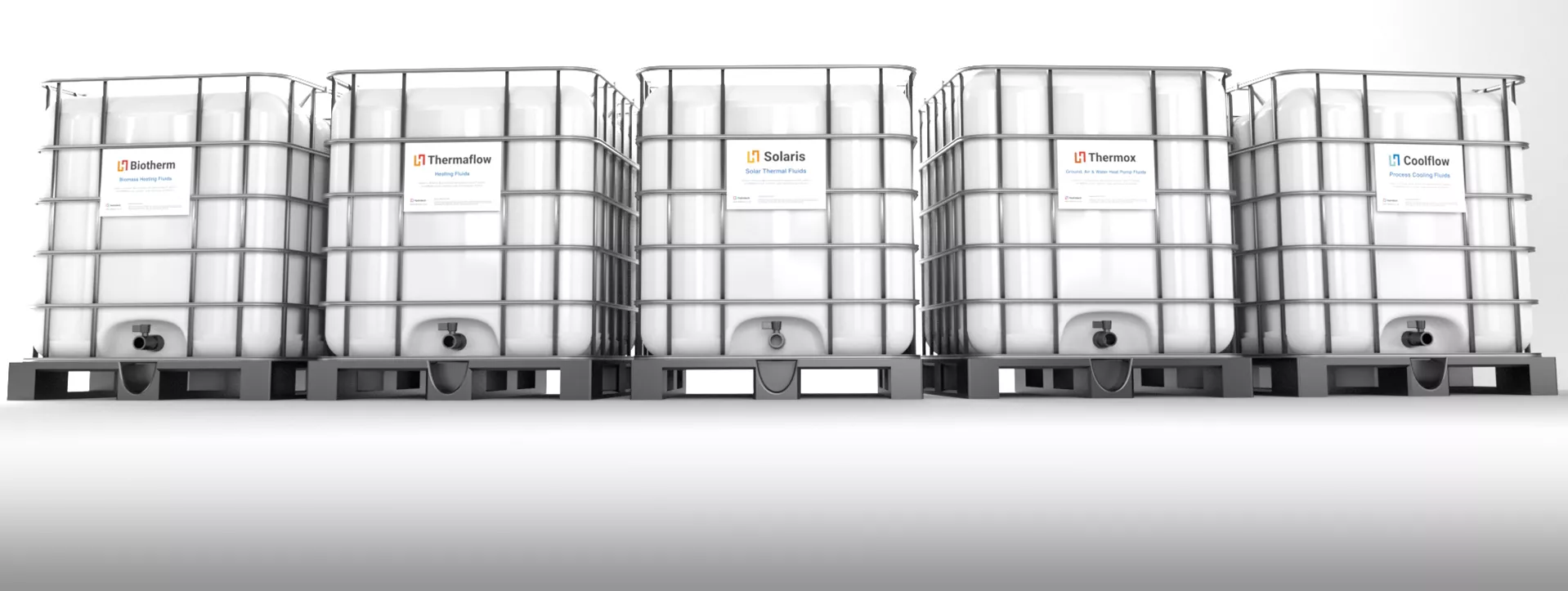Potassium Formate Brine
Hydratech’s high performance antifreeze solutions are formulated to maximise CoP via a comprehensive understanding of fluid dynamics and thermodynamics.
More about potassium formate brine productsStrictly speaking all antifreeze solutions falling within the Brine category should be based on a salt solution. E.g. Calcium Chloride, Sodium Chloride, Potassium Acetate etc. Chemically speaking Alcohols, Glycols and Glycerine based solutions are not brines.
However, there is still an industry tendency to use Brine as an umbrella term for all aqueous based antifreeze solutions. To avoid errors we recommend careful clarification of the required fluid type prior to selection or purchase.
Chlorides
Chloride Brines as used in refrigeration systems include Calcium Chloride, Sodium Chloride, Magnesium Chloride and Lithium Chloride. The freeze curves are steep and care should be taken when considering the concentration required in relation to the eutectic point. Whilst the heat transfer properties and viscosities are good when compared to Alcohols, Glycols and Glycerine, the corrosivity is significantly worse. Chloride solutions require constant pH buffering and a high level of inhibitors to keep corrosion in check.
Potassium Acetate & Potassium Formate
Also referred to as Potassium Salts and Brines, Potassium Brines offer excellent thermal transfer and pumping characteristics, in fact much better than any of the alcohols, glycols or vegetable based antifreeze solutions. However, they do have a down-side, specifically they are much more corrosive, especially towards zinc and aluminium. To benefit from the positive attributes of Potassium brines it is highly recommended to use 100% Stainless Steel systems and preferably 316SS grade or above.
Regular analysis can extend the life of both fluid and system. Hydratech’s Fluid Monitoring Program (FMP) is a very straight forward, effective way to proactively monitor closed-loop system condition.

Hydratech’s high performance antifreeze solutions are formulated to maximise CoP via a comprehensive understanding of fluid dynamics and thermodynamics.
More about potassium formate brine products

If you need help or advice on selecting the most suitable product for your needs call one of our sales engineers today. With experience across many industry sectors we can help you find the most cost effective solution whilst meeting all your technical requirements.
Call today on 01792 586800
Sorry, we need you to complete all the required fields before we can process your enquiry.
Regular analysis can extend the life of both fluid and system. Hydratech’s Fluid Monitoring Program (FMP) is a very straight forward, effective way to proactively monitor closed-loop system condition.